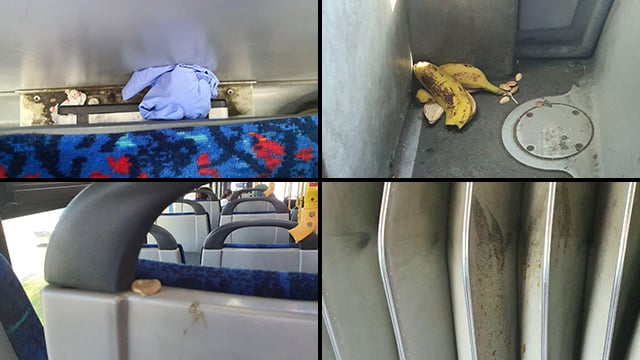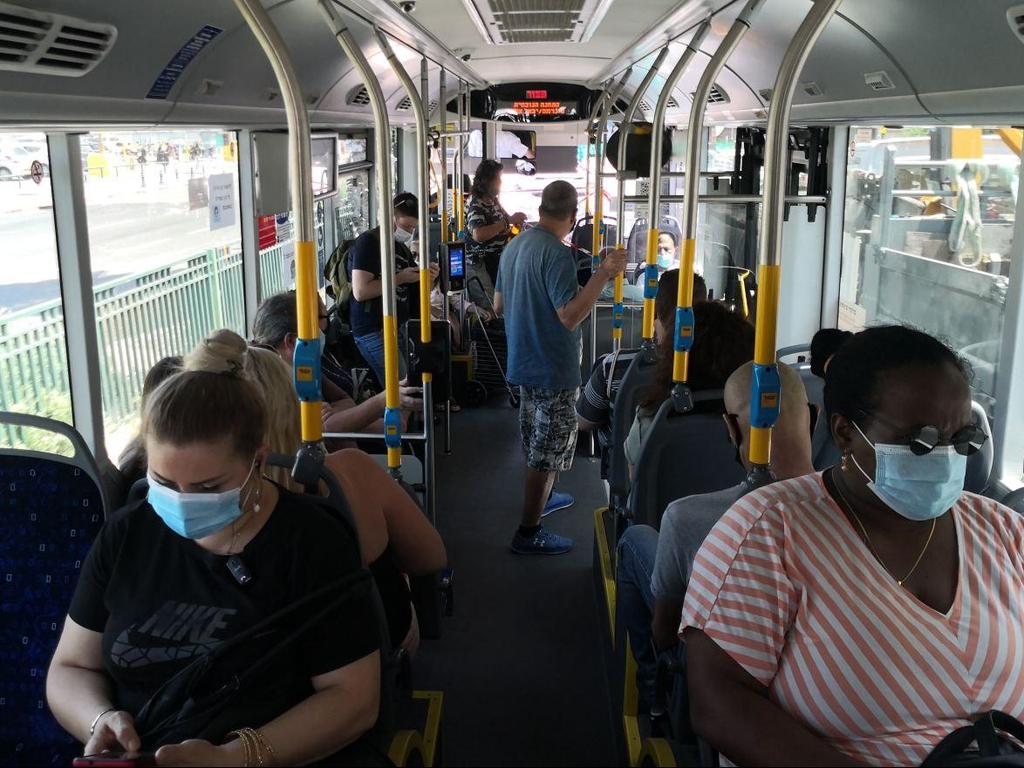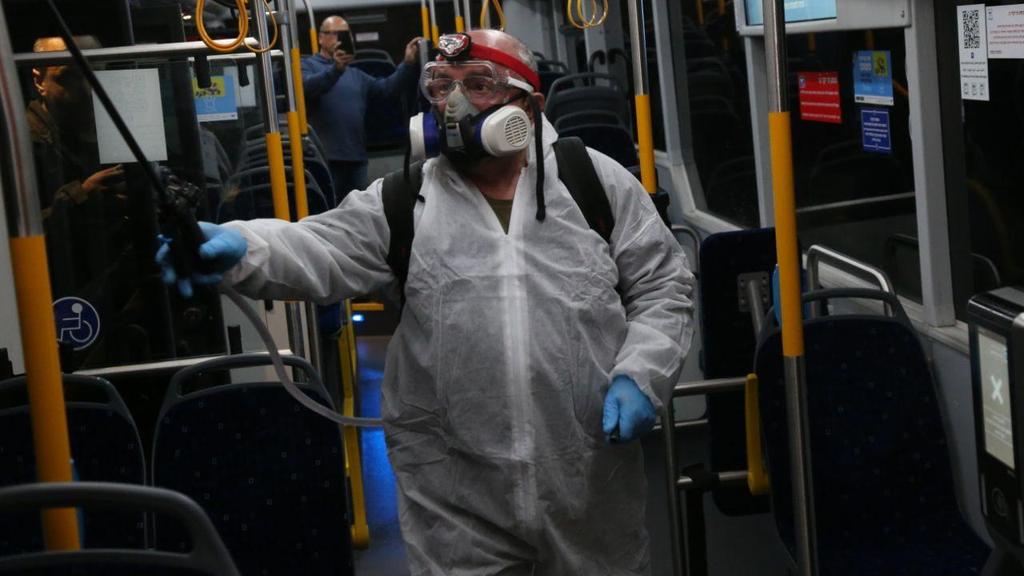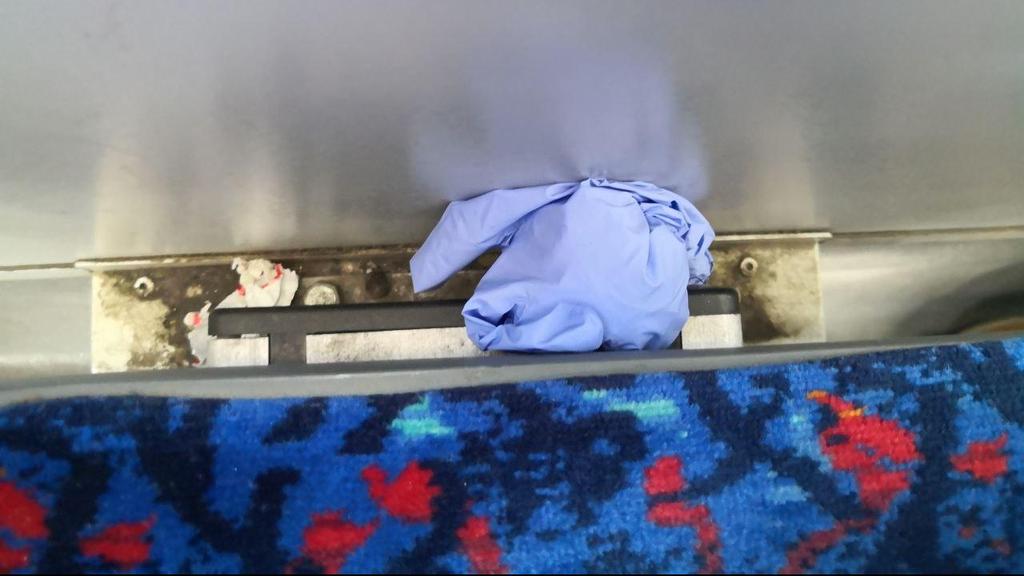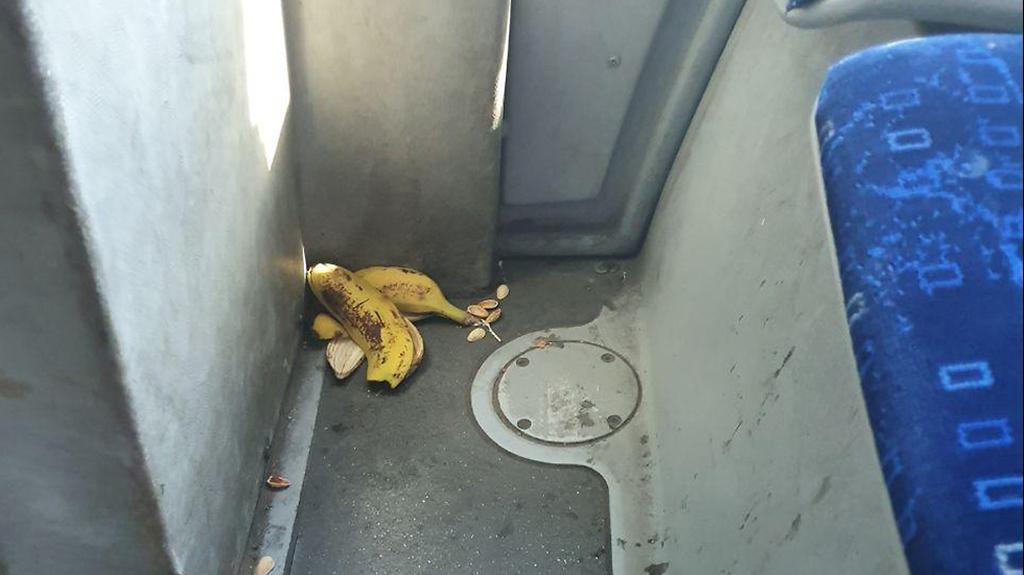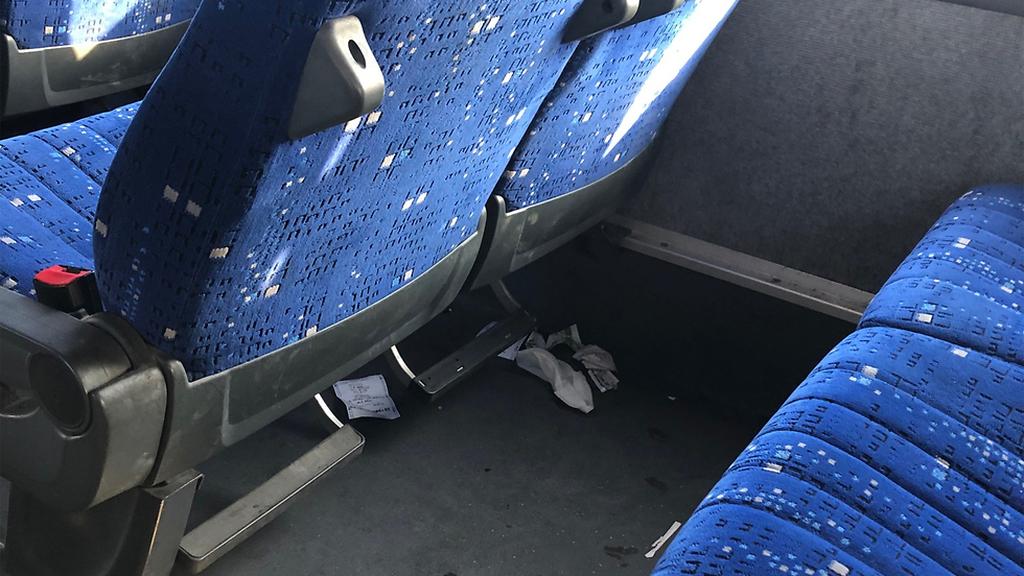Israel's exceedingly filthy public buses have become a major source of coronavirus infection, according to health officials, but public transport companies continue to neglect the problem while the ministries shift the responsibility.
According to the Health Ministry, in the last two weeks there have been 1,032 incidents of exposure to a confirmed coronavirus carrier on public transport.
The Movement for Freedom of Information group petitioned the Transportation Ministry to respond to the allegation they've failed to enforce public health orders on bus operators. The ministry, however, said the responsibility for enforcing health regulations lies with the Health Ministry.
The Health Ministry, meanwhile, said the responsibility lies with solely with the Transportation Ministry.
The latest incident occurred in Tel Aviv on Monday, on Line 18 bus operated by the Dan Public Transportation. On the same day, exposures to confirmed virus carriers were reported on Line 7 in Bnei Brak, lines 3,26 and 10 in Tel Aviv, and Line 13 in Hadera.
On July 5, 15 incidents of exposure to verified carriers were reported on public transport: Line 430 from Haifa to Tiberias, Line 434 from Tiberias to Haifa, Line 960 from Haifa to Jerusalem, Line 270 from Tel Aviv to Rishon Letzion, Line 180 from Bnei Brak to Elad , Line 998 from Bnei Brak to Kiryat Ata, lines 18 and 10 within Tel Aviv, Line 20 in Jerusalem, Line 20 in Ashdod, Line 48 in Ramat Hasharon and Line 2 opearting in Kiryat Ata and Haifa.
Prime Minister Benjamin Netanyahu announced at the very start of the coronavirus outbreak in March that all public transport vehicles must regularly be disinfected, with the Transportation Ministry issuing a host of guidelines to the public transport operators shortly afterwards.
The guidelines included disinfecting the surfaces, handles, buttons and switches after every single bus ride. These potentially lifesaving orders have thus far gone unfulfilled, with the bus operators admitting they don't have the resources to sanitize the buses after every single ride.
Meanwhile, some bus drivers also claimed that buses sometmes go without being disinfected for several days.
"There was a case recently of a driver who got coronavirus and was told to go home, and another driver replaced him on the same bus," said Baruch Kovlin, a bus driver working for Dan. "There is no disinfection, no hygiene, and now with the new instructions that allow up to 32 people on the bus, all seats will be occupied, there will be no way to keep distance from one another."
According to Kovlin, the Dan company used to clean each bus during the driver's lunch break, but at the moment, "due to economic considerations almost all cleaners were removed from the bus terminals. The level of cleanliness, of both the buses and of the terminals, is poor. "
Yoni Ariel, a driver working for the Egged bus operator, reiterated the sentiment. "Sometime a driver gets a bus from another driver with scraps of food and dirt in it," he said. "There is no disinfection on buses whatsoever. We were told they would only disinfect the bus if a confirmed coronavirus patient was onboard. Every bus, even if you clean it after two trips, looks like a garbage bin."
Prof. Ronit Calderon-Margalit, from the Department of Public Health at the Hebrew University, said the main issue is the lack of basic cleanliness. "I'm not sure disinfecting is the most important thing to do. In East Asian countries that is what they do, but I'm not convinced of its effectiveness. Places, which people often touch, however, should definitely be cleaned."
Attorney Ya'ara Winkler-Shalit of The Movement for Freedom of Information, said the Transportation Ministry's shifting of responsibility to the Health Ministry, is astonishing.
"Although we believe the Transportation Ministry is the relevant authority to collect and publish this data, we have also made an inquiry to the Health Ministry and we await their response, hoping that at least one of the authorities has monitored and collected the relevant data on the matter."
Eitan Fixman, a spokesperson for Dan Public Transportation, said the company's buses "are being cleaned at the end of every shift, at night, in one of our car parks," he said. "This cannot be done during working hours as the buses need to be disabled for this purpose. Exceptional cases reported to us are dealt with immediately."
Ron Ratner, a spokesman for Egged, said in response: "As with all the city buses in Jerusalem, they make long and tedious long-haul trips, and during their journeys there is a constant change of passengers, which unfortunately often results in scraps of gum paper and other dirt," he said.
"The city buses usually make circular routes and only at the end of the work day arrive at the car park, where they go through thorough cleaning."


